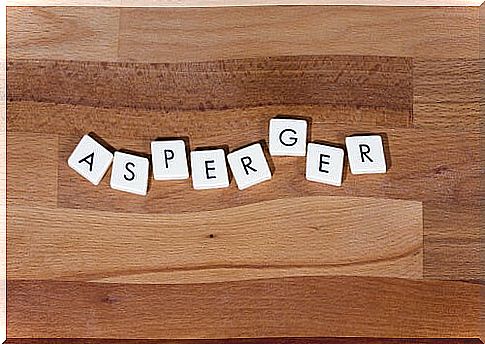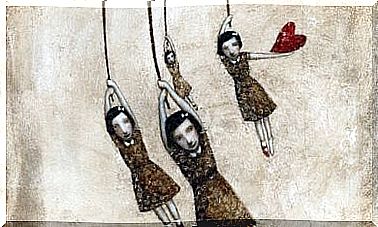What Do You Know About Asperger’s Syndrome?

You may have heard of Asperger’s Syndrome. Maybe you know someone who has it or maybe you have it yourself.
Asperger’s syndrome is a disorder that falls within the autism spectrum. However, it can be clearly distinguished from autism thanks to multiple studies that have been conducted on the subject. The most obvious difference is the ability to be independent when the people with this syndrome are adults, compared to the average person with autism.
Asperger’s syndrome is a neurological disorder
Asperger’s syndrome is a neurological disorder with an important genetic basis in which certain brain structures are damaged. But what are neurological disorders?
Neurological disorders are a group of neurological problems that cause alterations in various processes, such as cognition, communication, behavior and motor skills. These changes are caused by atypical brain development.
In other words, the brain of someone with Asperger’s functions differently in many aspects than the brain of someone whose neurological development has not been altered. We’re not saying it’s good or bad, we’re just talking about the differences in functioning when it comes to processing and perceiving information.
People who suffer from Asperger’s syndrome see the world in a different way
It’s kind of like they have different codes that they use to interpret the world and their environment. These codes make them live in a way that is foreign to others. But hasn’t everyone met someone who behaved differently from what he expected? In fact, we sometimes perceive reality in a distorted way, which causes us to behave in ways that seem strange to other people.
Let’s go a little more in depth and talk about the most typical characteristics of people with Asperger syndrome. The Confederation of Asperger’s in Spain states the following:
Characteristics of Asperger’s Syndrome
- Social discomfort and difficulty interacting with other children and/or adults. People who suffer from this syndrome can be naive and gullible.
- These people are often unaware of other people’s feelings and intentions and are often unable to understand people’s emotional reactions.
- They have great difficulty achieving and maintaining a normal rhythm in a conversation. They are easily upset by transitions and changes in routine.
- They take language literally. They don’t understand sarcasm or metaphorical language; everything for them is literal. For example, they would interpret the statement “a heart as big as the world” as if someone’s heart is literally that big.

- They are very sensitive to strong sounds, colors, lights, smells and tastes.
- They tend to develop a strong interest or even fixation in one subject and become true experts in it. Many children with Asperger’s can look at a landscape for just a few minutes and then fully reproduce every detail with incredible precision.
- Their psychomotor skills are not very good, so they are usually not good at sports.
- They often have trouble making and maintaining friendships with people their own age. This is mainly because they do not perceive the world in the same way and that frustrates them. The same thing happens to each of us when we don’t get along well with other people because the way we see and experience the world clashes with theirs.
Put yourself in them and try to understand them
We must be able to see beyond the disorder. People with Asperger’s often feel misunderstood. They feel like strangers in a world that operates according to rules that sometimes clash with their own. They don’t understand the meaning of many things we do.

Therefore, we must make an effort to understand and share their feelings and to see that the way they perceive reality is different from how we perceive it. And this doesn’t mean that ours is good and theirs is bad, it just means that they are different.
We live in a beautiful world where fortunately we are all different and can learn from these differences. Differences that enrich our relationships and help us to be more tolerant and to shed the prejudices we carry with us.









